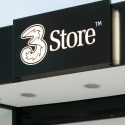Eurobites: UK's 5G Auction Hurdle Cleared
Also in today's EMEA regional roundup: Nokia addresses virtualization risks; ARM targets machine learning; UK soccer rights auction suffers deflation.

Also in today's EMEA regional roundup: Nokia addresses virtualization risks; ARM targets machine learning; UK soccer rights auction suffers deflation.
The final obstacle to the UK's next spectrum auction, which is focused on the 2.3 and 3.4GHz bands and set to pave the way for the arrival of 5G technology in the mainstream, appears to have been cleared after mobile operator Three UK 's appeal against the rules of the auction was rejected in the courts, City AM reports. Three had argued that the amount of spectrum available to its bigger rivals, BT Group plc (NYSE: BT; London: BTA) among them, should be capped at a lower level than it currently is. Telecom regulator Ofcom had blamed litigation by both Three and BT-owned EE for delaying the auction process, which now looks likely to take place in April. (See Eurobites: UK Regulator Accuses BT & Three of Erecting 5G Roadblocks.)
Nokia Corp. (NYSE: NOK) is hoping to allay fears associated with "virtualization" of networks with the introduction of its Security Risk Index assessment service, which can be followed up with a managed security service. The idea is that operators can use the combination to tighten up the security on their own networks before offering elements of the managed security services to business customers.
Separately, Nokia has been trumpeting its involvement in the deployment of Gfast technology in apartment buildings by Post Luxembourg. Gfast is a way of squeezing more performance out of existing copper lines in contexts where delivering fiber to the property is deemed unviable. As part of the contract, Nokia will be supplying 8- and 16-port Gfast micronodes with vectoring, which it says suit multi-dwelling units.
UK chip designer ARM Ltd. has unveiled a set of processors that it says will deliver "enhanced machine learning and neural network functionality" and lend themselves to AI applications. The processors form part of ARM's Project Trillium. For more details, see this story on our sister site, Telecoms.com.
Is premium sports TV content beginning to lose its luster? Could be. For the first time, the amount that Sky and BT have bid between them for the rights to screen top-flight matches in English soccer's Premier League over a three-year period has fallen, from £5.1 billion (US$7 billion) in 2015 to £4.4 billion ($6.1 billion) this time around. As the Daily Telegraph reports, there had been speculation that one of the online giants such as Amazon might throw their hat into the ring this time around but, although some of the content packages have still to be sold, that now looks unlikely.
Switzerland-based Kudelski Group reported full-year revenues up 7.1% to $1.06 billion but net income was way down, to $2.7 million from $88.5 million a year earlier, adversely affected by restructuring costs and a slowdown in its core TV-related operations. Looking ahead, the company expects the deceleration in its traditional pay-TV business to continue, as the ongoing digital TV revolution wreaks further havoc.
UK altnet Hyperoptic is claiming a broadband speed record in a trial at the former Olympic athletes' village in east London. Download speeds of 10 Gbit/s were achieved, using an existing fiber network. In a dig at the likes of BT, Hyperoptic CEO Dana Tobak said in a statement: "While the market incumbents focus on sweating their copper assets and lobbying the likes of the ASA to convince them that it's acceptable to market their Fibre-to-the-Cabinet services as 'fibre,' we are proudly setting a new standard."
— Paul Rainford, Assistant Editor, Europe, Light Reading
Read more about:
EuropeAbout the Author(s)
You May Also Like




_International_Software_Products.jpeg?width=300&auto=webp&quality=80&disable=upscale)







